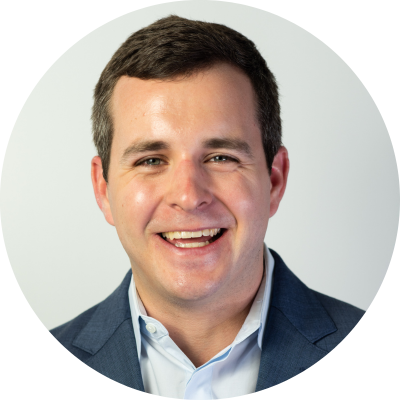Deacon Spotlight: Marshall Shaffer
Marshall Shaffer (2015, BA Communication and Sociology, Minor in Film Studies)
Associate Director, Paid Social at Ogilvy in New York, NY

Tell us about your current job role and employer. What are you currently working on?
I work as an Associate Director within Ogilvy, specializing in paid social media. I began with the company in 2018 and helped to execute new paid media offerings for health & wellness clients. As our media expertise grew beyond social to encompass a broader range of digital tactics, I kept a foot in both worlds to understand how content and distribution go hand-in-hand. I’ve since brought this hybridized thinking to B2B, education, and pharmaceutical clients.
What key personal and/or career experiences led you to where you are today?
A lot of internships and trying different portions of the media, communications, and advertising industry. It was definitely a Goldilocks process for five years, figuring out which elements of the business I liked and disliked as I sought to find a job that best fit my skills and interests.
What is the most challenging aspect of your job? How do you navigate that challenge?
It’s challenging to remember that not everyone knows the nuts and bolts of your specific job, especially when you work within a large organization on projects or campaigns that pull in colleagues across many specialties. This means it’s as important as anything to understand how to communicate in a way that ensures everyone understands what you’re contributing and how they need to help you achieve your objectives.
What advice would you give to Wake Forest graduates about developing their personal life habits after college (finances, health, values, work/life balance)?
Just like you had to adjust to the different rhythms from high school to college, you’ll have to undergo a similar overhaul entering the working world. There’s no one-size-fits-all all solution for everyone, but start noticing the areas of your life where you feel your mind drawn — and ensure that you’ve aligned your investment of time and money with that. For everything else, figure out a way to reduce the amount of energy you have to expend on those things.
We know that relationships are important for any kind of development. How do you build and maintain your network?
Remember that any interaction can be networking if you want it to be. Sometimes, the most meaningful connections you make in your professional life are those that didn’t start with the intent to be commoditized. Maintain at least sporadic, if not steady, communication that isn’t nakedly transactional or self-promotional so that they understand the gravity of the situation when you need to activate your network.
Tell us about your mentoring relationships. What impact have these relationships had on your career and life?
I have never had an official mentor, but I’ve turned to plenty of current and former colleagues for advice in professional situations. These people are helpful when you need the one thing you cannot generate yourself inside of a problem where you need advice: perspective. Don’t expect them to solve your problems, but approach these figures with vulnerability and an openness to real feedback and constructive criticism.
What advice would you give to current Wake Forest students and/or young alumni who are interested in working in your industry?
Advertising and the wider marketing/communications space is changing all the time, so any advice about how to enter the industry gets dated fast. What remains constant is that there will always be a need for people who can learn quickly, think intelligently, and connect the dots between the business needs and the ways we can go about achieving it.
Story published in December 2024. For current updates about Marshall, visit his LinkedIn.
